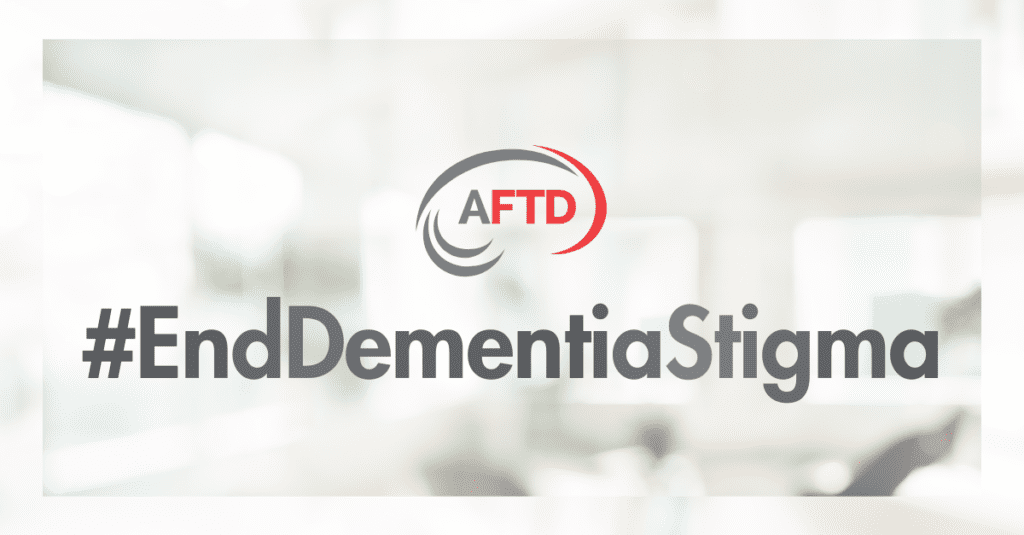AFTD Launches Social Media Campaign to #EndDementiaStigma

AFTD has launched #EndDementiaStigma, a social media campaign to mark Brain Awareness Week. The campaign empowers people with FTD, along with their care partners, family members, and friends, to share stories of how they continue to find meaning and connection, and to educate those around them to end dementia stigma. The campaign is initially launching on Instagram, Facebook, and X.
“Recent clickbait headlines have pushed harmful, unfounded speculation about how FTD affects people,” said AFTD CEO Susan L-J Dickinson. “Beyond being reductive and inaccurate, this language only serves to further stigmatize and dehumanize people who have FTD. The truth is that most people with FTD and other forms of dementia continue to connect, engage and find meaning in their lives.”
FTD has been in the spotlight in recent months after public announcements that actor Bruce Willis and TV talk show host Wendy Williams were diagnosed with the disease.
Research has shown that media framing of dementia is largely negative. This can create harmful stigmatization that can shape not only public perception, but even how medical professionals treat people in clinical settings. Visit AFTD’s #EndDementiaStigma Toolkit to download graphics and ways to share your story on social media platforms.
“You feel as if you’re invisible, that your thoughts and feelings don’t really matter to others,” said Dr. Seth Stern, a former Obstetrician-Gynecologist who was diagnosed with FTD in 2023, after five years of seeking answers to why he had difficulty finding words and following routine procedures. He retired shortly after learning about the diagnosis. “People talk over you. And people do not give you the time to find your words or to complete your sentences. So, for example, you could be at a doctor’s appointment, and the doctor, instead of speaking to you directly, will go ahead and ask my wife, ‘Oh, well, how’s he doing?’, rather than asking the question to me.”
FTD is a group of brain disorders caused by degeneration of the frontal and temporal lobes. In the beginning, people often appear physically healthy despite the neurodegeneration that is occurring. The most common symptoms are uncharacteristic personality changes, apathy, and unexplained struggles with decision-making, movement, speaking, or language comprehension. These symptoms occur infrequently at first but increase as the disease progresses.
FTD is the most common form of dementia for people under age 60, though it may be diagnosed in people from their 20s to their 80s. Unlike Alzheimer’s disease, memory is usually unaffected. There is no treatment for the fatal disease, but research is advancing and there are clinical trials underway today that provide hope for an approved therapy in the not-too-distant future.
FTD is also often misdiagnosed as a mental illness by medical professionals who are not familiar with the symptoms of the disease; this can sometimes lead to improper treatments and even psychiatric hospitalization. On average, it can take over three and a half years to receive an accurate diagnosis. In the meantime, families often struggle to understand their loved ones’ uncharacteristic and unsettling behavior. Researchers believe the disease is widely underdiagnosed, especially among people of color.
By Category
Our Newsletters
Stay Informed
Sign up now and stay on top of the latest with our newsletter, event alerts, and more…
